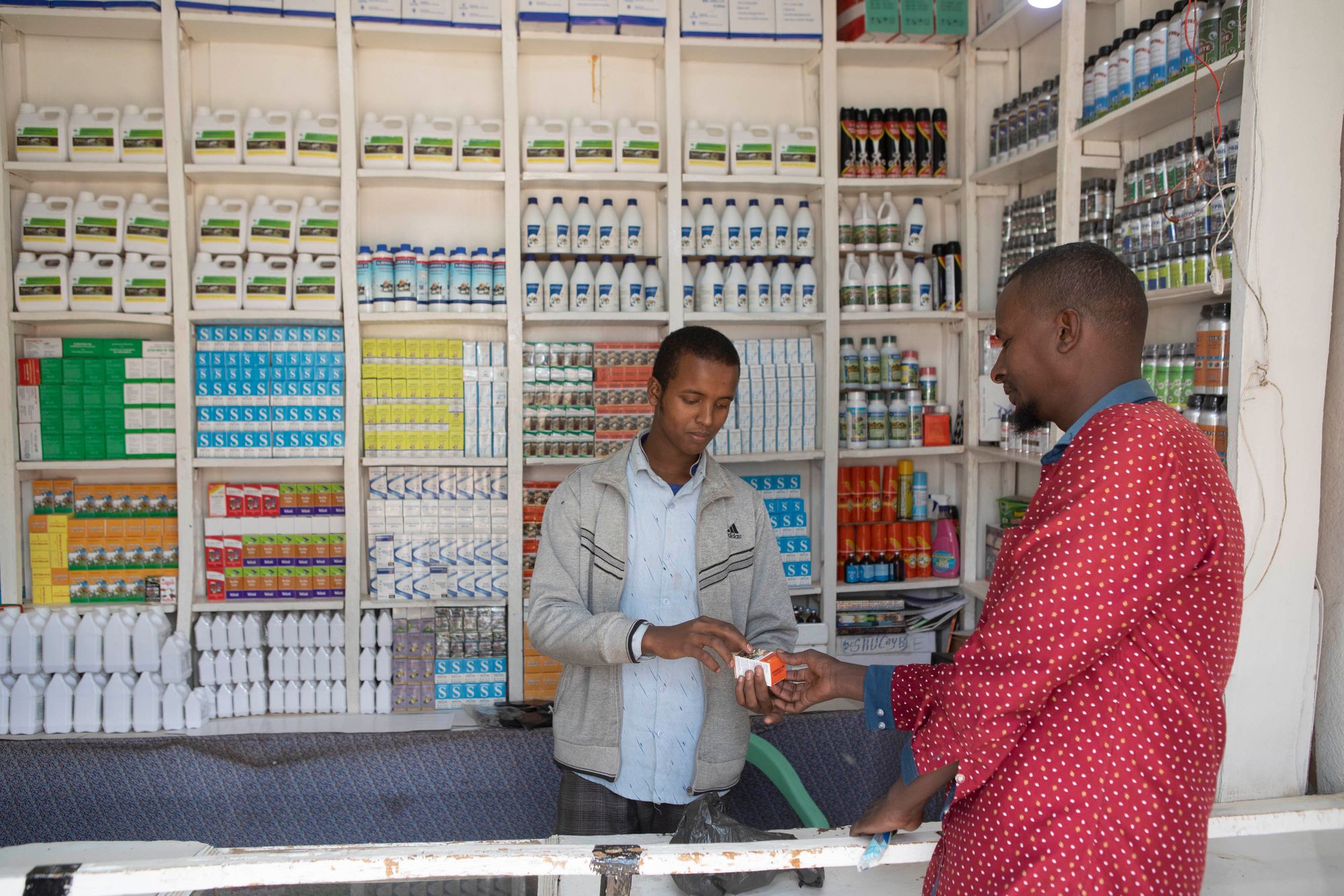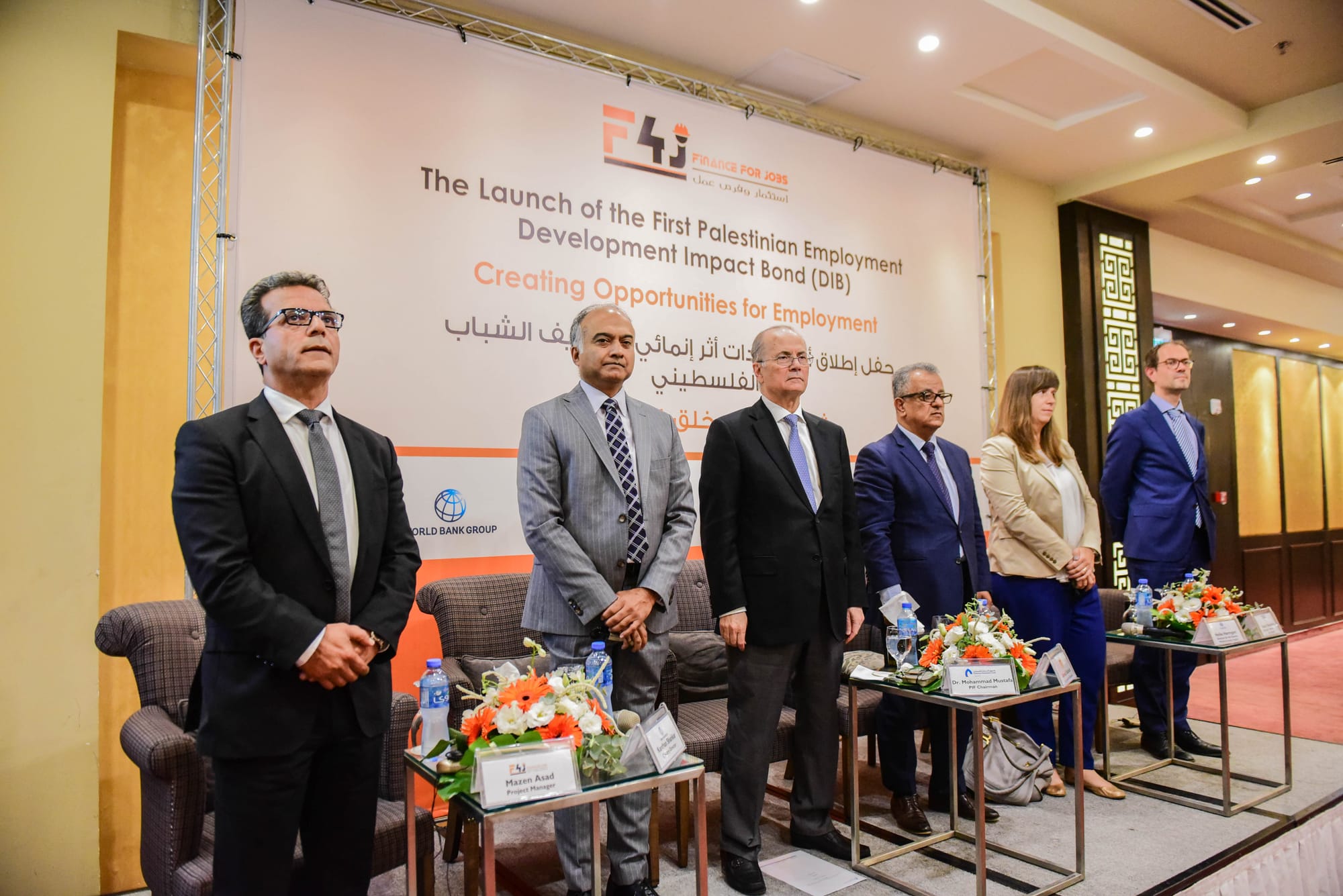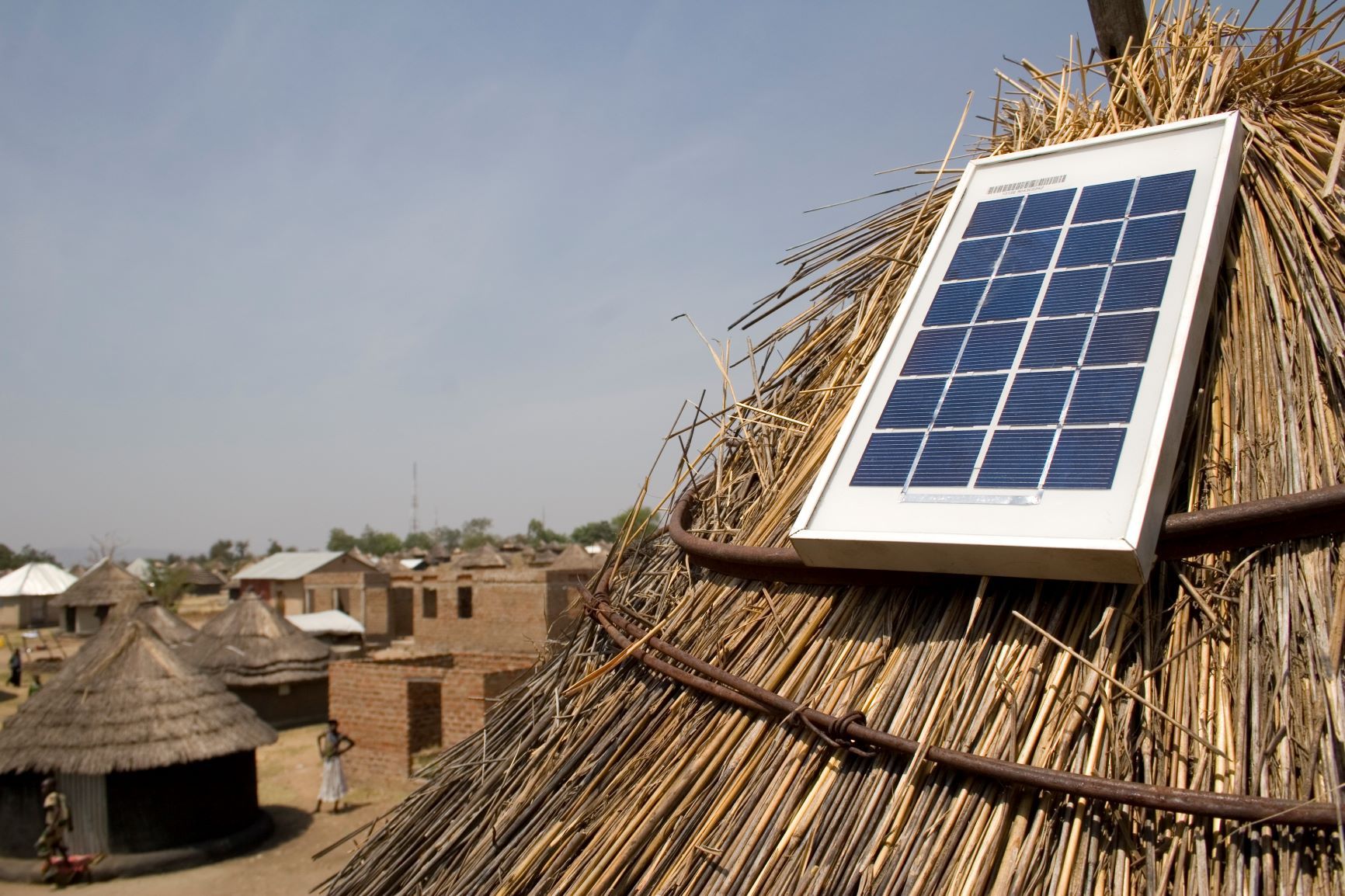Despite being one of Africa’s fastest growing economies, Ethiopia lags behind some of its poorer neighbours, including Somalia, in terms of its banked population. Just over one third of Ethiopians are bank account holders, and as few as one in 10 are active borrowers from financial institutions. Ethiopia also has a low uptake of digital finance services: just 0.3 percent of Ethiopians had mobile money accounts in 2017, compared with 21 percent on average across Sub-Saharan Africa.
Formal financial services—such as banking, money transfers, and digital financial services—are essential for business and economic growth. They facilitate savings, provide secure and legitimate loans, help account holders develop credit history, and ease money transfers domestically and across borders. Financial inclusion is also critical to facilitating remittances, of which Ethiopia receives nearly half a billion dollars annually. Many of the country’s refugees receive remittances that help meet their household needs when they are unable to generate income. Ethiopia hosts one of the world’s largest refugee populations—more than 820,000 people—mainly originating from South Sudan, Somalia, and Eritrea.
Why Digital Financial Services?
According to the most recent World Bank data, 78 percent of Ethiopia’s population live rurally, where the challenges of traveling over great distances and rugged terrain via poor infrastructure compound the difficulty of including more people in the formal financial system. Distance is the most significant barrier to financial inclusion for old and poor adults. Traveling is also a significant barrier for refugees and women, who often face movement restrictions or personal safety issues.
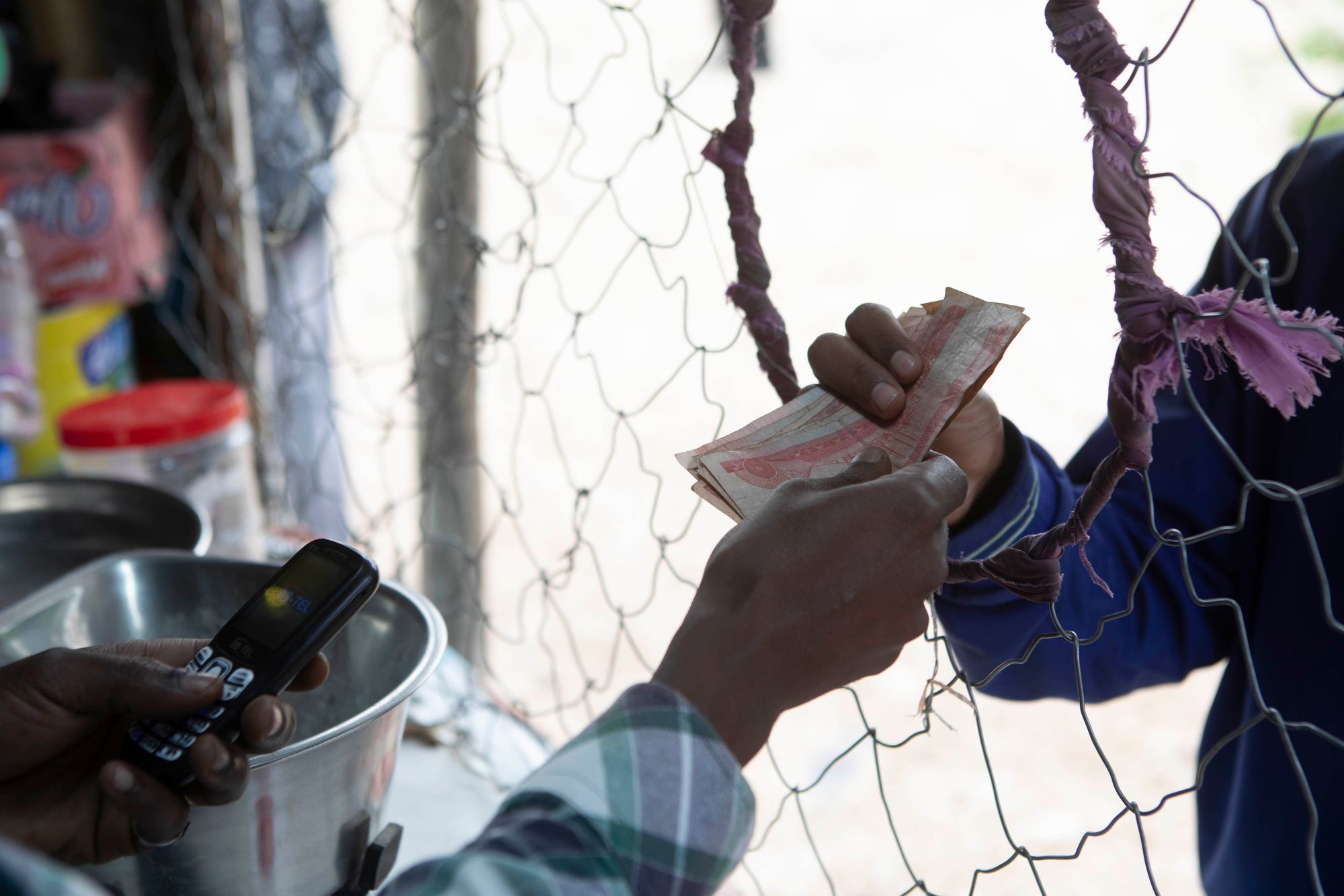
Mobile and digital financial services can provide an effective way to grow account ownership. For banks, investing in digital services is cheaper than installing the many new “brick and mortar” branches that would be needed to accommodate traditional account holders. For customers, access to formal financial products becomes easier, with time and expenses saved and the travel barrier eliminated.
Ethiopia’s Somali region, which hosts approximately 250,000 refugees across eight camps, is a case study in how digital finance—with a helping hand from the U.K. Foreign, Commonwealth & Development Office—is boosting account holding and growing the local financial market.
Somali Region Solutions
In 2020, the Strengthening Host and Refugee Populations (SHARPE) project partnered with Shabelle Bank to boost the rollout of HelloCash in the remote areas of the region, with an eye to strengthening the local economy and supporting financial inclusion for both refugee and host populations. HelloCash is a local mobile money service that enables customers to transfer money across account holders, withdraw cash from HelloCash agents, and make payments digitally to subscribing merchants—all by phone. HelloCash agents provide cash-in and cash-out services for customers while merchants trade with agents and customers in exchange for e-payments.
Growing the HelloCash network required a significant investment from the bank with uncertain returns, so SHARPE co-invested approximately £200,000 alongside Shabelle’s £250,000 to de-risk the investment. The project’s initial goal was to sign up 300 new HelloCash agents, add 650 new merchants to those willing to accept digital payments, and win 40,000 new HelloCash users among refugees and the nearby communities. HelloCash already offers agents and merchants a 1 percent commission on each transaction performed. SHARPE and Shabelle Bank also sweetened the pot in this case by piloting an interest-free business loan of Birr 60,000 (£1,000) for 41 agents. Since many of the agents were refugees who lacked fixed collateral for the loan, Shabelle Bank agreed to waive the usual collateral requirement and accept personal guarantors instead, a first for the bank.
The idea behind the microloans was to provide refugees with sufficient liquidity to overcome an ongoing lack of cash-in-hand, which can be a major barrier to agent growth. Agents operating far from physical bank branches quickly run out of cash and need more capital to serve customers. HelloCash merchants, often small shop owners who do much of their business in cash, can also swap their cash for e-credits, earning a 1 percent commission while building the agents’ liquidity.
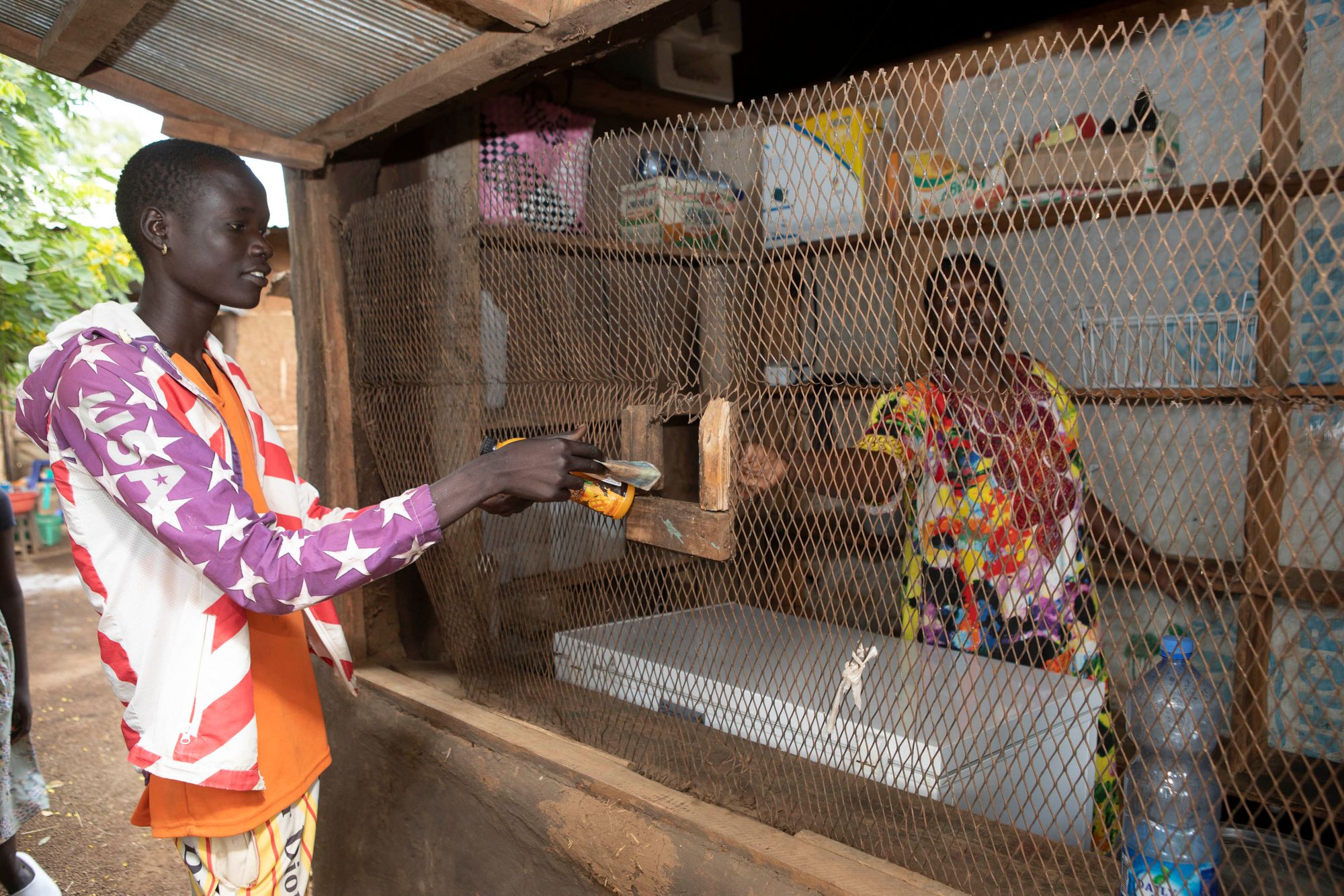
Strong Returns
Two years into the partnership, the economic benefits of the HelloCash services quickly became apparent to Shabelle Bank, refugee communities in the Somali region, and the surrounding Ethiopian community. Shabelle had gained 262 HelloCash agents—including 32 refugee agents—and some 2,200 additional local businesses were accepting HelloCash payments, more than three times the original goal.
All 41 agents who received the trial loan paid back their loans in full within six months, convincing Shabelle Bank of the viability of the refugee market for microlending. The bank is now developing a loan product specific to refugee business owners, the first of its kind for this market. And while digital finance remains central to the initiative, Shabelle is also constructing four mini-bank branches inside some of the more remote camps, allowing the bank to better serve refugee clients.
Across the region, Shabelle added 66,000 digital service customers, including more than 8,000 from the refugee community. Between 2020 and 2022, new customers alone conducted more than £29.5 million in digital transactions.
Sahra Haybe Xiiray, a refugee who lives in the Sheder camp and uses HelloCash to receive monthly funds from her husband, who works outside the camp, said, “Registering as [a] HelloCash user helped me to save time and withdraw cash from anywhere without asking and waiting someone else.”
Another client running a small business near a similar camp has been using HelloCash for five years. She reports using it several times a day to deposit cash generated by her business and send money to her mother. “I feel safer using HelloCash instead of taking money on transportation to the bank. It would take a lot of time if I had to leave my shop,” she said.
These and other examples show why financial inclusion is important to the economic independence, social mobility, and personal agency of refugees. Even in this challenging environment, SHARPE has shown that the interests of financial institutions and development practitioners are aligned and can be advanced with a relatively modest infusion of capital and program support.

